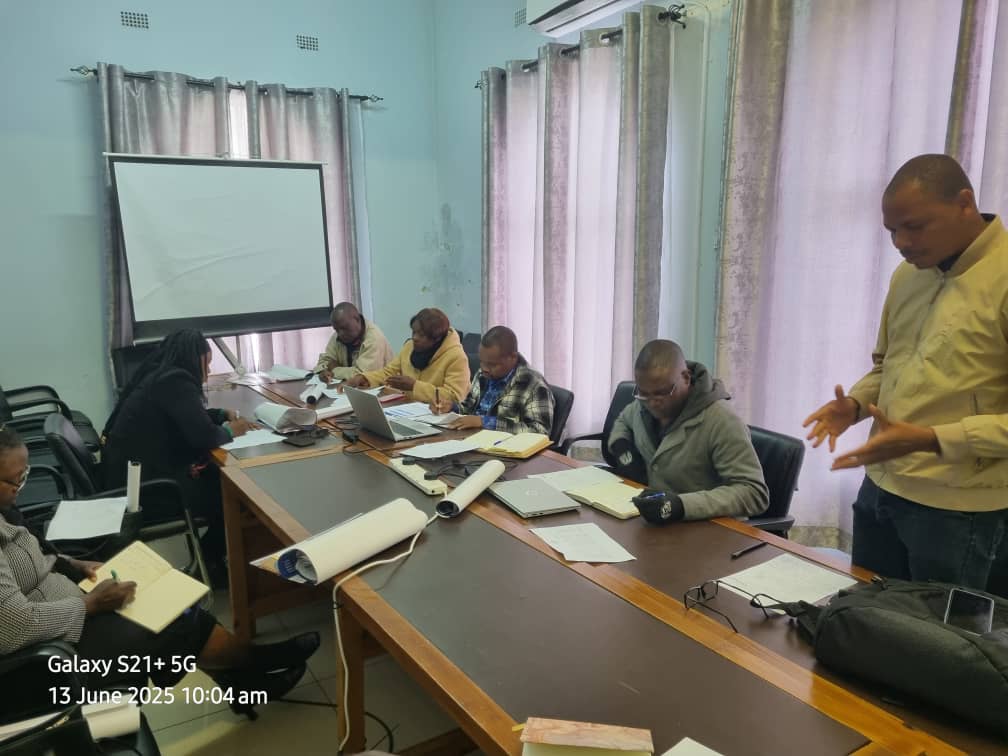Our Provincial Chapters

The Coalition has 9 provincial chapters, listed below. Also use the contact details listed per chapter where you need more information about the province you are interested in:
1) Bulawayo
2) Manicaland
3) Mashonaland Central
4) Mashonaland West
5) Masvingo
6) Matabeleland North
7) Matabeleland South
8) Mashonaland East
9) Midlands.
There is a secretariat based in Harare that is headed by the Executive Director.
Bulawayo
Handsome Ncube (ZIMTA)
+263 735 340 045
Manicaland
Edius Mbaura (ZIMTA)
+263 772 878 630
Mashonaland Central
Gibson Chigama (ZIMTA)
+263 776 218 964
Mashonaland West
Shupikai Zebron (FAWEZI)
+263 773 920 028
Masvingo
Annacolleta Mweneziko (PTUZ)
+263 773 897 040
Matabeleland North
Kwanele Ndlovu (ZIMTA)
+263 772 462 361
Matabeleland South
Urgent Moyo (PTUZ)
+263 782 702 831
Mashonaland East
Sinikiwe Charova (CAMFED)
+263 759 710 50
Midlands
Julias Makute (ZIMTA)
+263 772 703 869
Provincial Chapters work and strengthening education through grassroots.
Provincial Chapters Step Up for Better Education
Over the past month, ECOZI’s provincial chapters in Masvingo, Manicaland, and Midlands have been buzzing with activity, bringing together teachers, civil society, and community leaders to talk about the real issues affecting education in Zimbabwe. These meetings weren’t just about ticking boxes – they were about honest conversations, sharing frustrations, and finding ways to make schools better for every child.
In Masvingo, members gathered at ZIMTA House to map out stronger partnerships with organizations like COTRAD and Mirror. The Heritage-Based Curriculum (HBC) came under heavy criticism, with parents and teachers worried about the pressure on Grade Seven learners who now have to complete 12 projects, some meant for Grade Six. There were also deep concerns about the protection of the girl child, following disturbing videos of abuse circulating on social media. The chapter committed to working closely with communities and schools to strengthen child protection and pledged to regularly meet in person since poor internet makes online engagement difficult.
In Manicaland, the conversation was fiery and straight to the point. Stakeholders called out policies that just aren’t working – they want Agriculture to be compulsory, not Heritage Studies, because “we are an agro-based economy, let’s be realistic.” Members also raised the alarm over school dropouts – 6,889 children left school in 2024 in Manicaland alone, mostly due to poverty, long distances, and teenage pregnancies. There were strong calls for more schools to be built, BEAM to release funds on time, and urgent action to improve teachers’ salaries and morale. The meeting closed with a passionate reminder that the girl child, despite all the talk of empowerment, is still being left behind and needs more support.
The Midlands chapter brought a mix of hard truths and hope. On one hand, organizations like Plan International, World Vision, and Higherlife Foundation shared inspiring work – building boarding facilities for girls, giving bicycles to learners who walk long distances, and providing scholarships and sanitary wear. On the other hand, teachers spoke out about poor salaries, lack of resources, and the need for more inclusive education, especially for learners with disabilities. The chapter agreed ECOZI must push harder for better teacher welfare, faster BEAM payments, and stronger collaboration with the Ministry of Education to ensure no child is left behind.
Across all these chapters, one thing stood out – people care deeply about education. There’s frustration, yes, but also so much commitment from communities, teachers, and organizations who are determined to keep fighting for every learner’s right to quality education. ECOZI’s provincial chapters are making sure those voices are heard – and turned into action.

